Water

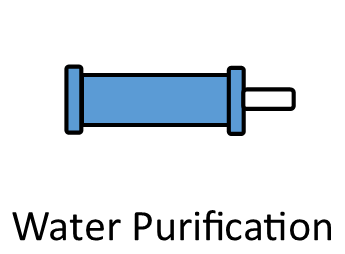
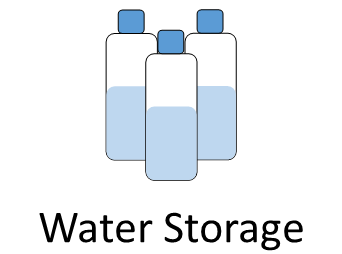
Water is the most important item on any emergency list in most cases. Humans can only live a few days without it. Many people have access to tap water either from city water or a well, but where would you get water if those sources fail? It is extremely important to have an alternate source of water, whether it be stored water, a stream or pond, or rain catchment system. Be aware that water from other sources such as streams, ponds, catchment systems must be treated before drinking and have a plan on how you would treat that water.
You want to find an alternate source of water that is nearby if possible. Water is very heavy and hauling long distances can be difficult depending on the containers being used. If you live in an area without a nearby water source start to think of alternate methods such as capturing rainwater. Everyone’s situation is going to be different but the time to think about your options are before you need them. Once you find your source think about what you will need to transport and purify the water regularly.
Knowing how to purify drinking water is extremely important and worth investing the time to learn. Whether your tap water becomes contaminated or shut off or you need to use another source of water that may not be clean for drinking, knowing how to purify water is a necessity. There are many ways to purify water such as water filters, boiling, purification tabs, distilling, etc. A good water filter is probably the easiest and quickest way to get started. They can be inexpensive, and many have the ability to filter several thousand gallons of water. Not all water filters can make non potable water drinkable so make sure you read the details. There are several out there that are well known and can be found easily on the internet. You can start with a straw type water filter intended for backpacking and emergencies. These filters are inexpensive and very portable. This will give you the most flexibility in being prepared. Larger household type filters are great and much easier for day to day use but are more expensive.
It is also important to know how to purify water with other methods in case a filter is not available. For any of the other methods of purifying water you will want to try to get the water as clean as possible before treating. You can use a bandana or a coffee filter to strain particles and contaminates out of the water. Use the links provided to get the specific details of how purify water using the different methods.
For preparedness situations, it is recommended that you have 1 gallon of water per day per person. The one gallon per person per day amount also takes into account that you will need some water for cooking, brushing teeth, and other daily uses. For a short period of time such as a 72-hour supply, this can consist of stored bottles or gallons of drinking water. If you have to go beyond the 72 hours it is beneficial to have a house water filter and know how to purify water in other ways.
Everyone’s situation will be different. Water is very heavy so take this into consideration when deciding where and how much to store. An inexpensive way to start would be to buy several gallon size drinking waters from the store. This will give you your initial water supply and also give you reusable containers for water as you purify it.
Water storage can be anything that can hold water until you purify it. A swimming pool, rain barrels, ponds, etc. can be water storage if you learn how to safely purify it. You can purify this water as needed. In emergency situations you can fill up your bathtub with water for future use, just make sure the drain seals tightly.
Food
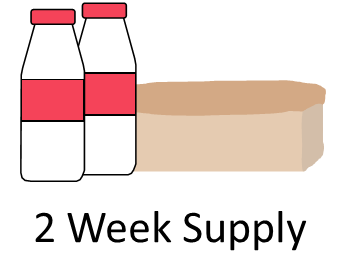
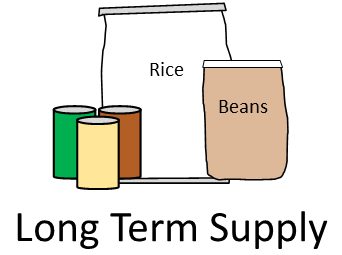
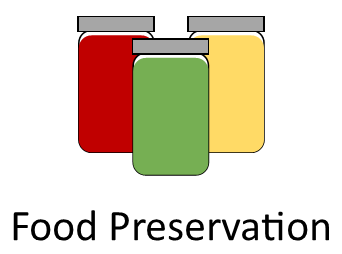
Your short term food supply will consist of a combination of perishable foods that you would eat every day and more shelf stable longer term foods such as canned goods (vegetables, soups, meats), dried goods (pasta, rice, beans), and frozen goods(meats, fruits and vegetables, frozen dinners). Your short-term food supply should be enough to last you several months. This food is intended to sustain you if there were interruptions in the food supply chain or if you were not able to buy food for any number of reasons. You can work these foods into your regular meal rotations and restock in order to keep your supply from expiring.
You can start by just adding a few extra cans of fruits, vegetables, peanut butter, etc. each time you go to the store. Make sure you buy food that you will want to eat and know how to prepare. Also knowing how much food it would take for you and your household to live off for several months is important. It may take more than you think if you are not used to preparing meals at home.
Your 1 Year supply of food will consist of long-lasting shelf stable foods such as rice, beans, pasta, salt, sugar. When packaged and stored properly these items can last 15 – 25 years depending on the item and technique used. This supply of food can be used regularly for meals but also serves as your emergency food source. In combination with your short-term food supplies you can make a wide variety of meals. Learn to cook with these ingredients regularly so that you can develop recipes that you enjoy. You will also be able to adjust your other supplies to compliment these ingredients.
Rice can last several years in a pantry in its original packaging. That shelf life can be extended to 15 – 25 years by using mylar bags in combination with 5-gallon food grade buckets and oxygen absorbers. You can also use mason jars or cleaned and dried 2-liter bottles and oxygen absorbers for smaller quantities. The main goal is to remove the oxygen in order to achieve the long shelf life. It may sound intimidating, but it is fairly easy after a time or two. There are also premade freeze-dried options from several companies. Most of these meals only require adding boiling water and have a 15 – 25 year shelf life when stored properly. These premade meals can be quite a bit more expensive.
A good place to start would be to buy one ore two large bags of rice (25lbs – 50lbs). Rice is relatively inexpensive compared to other dried goods and can be stored for several years without any additional preparations. You can add to your long-term food supply a little at a time at the same time as you are building up your short-term food supply. See provided links for recommended quantities of long-term food storage items.
Food preservation techniques are essential to being prepared. There are many ways to preserve food for different situations including (freezing, canning, smoking, dehydrating, dry storage, etc.). By learning how to preserve food you will be able to store food you grow, food you harvest through hunting and fishing, as well as foods that can be purchased in bulk. Freezing and canning are two of the most common forms of food preservation with freezing being the easiest way to get started. Freezer bags are inexpensive and are a good way to store most frozen foods. Meats, cheeses, soups, and many other items can be frozen for long term storage without much effect on the quality. Fruits and vegetables can be frozen but will often lose their texture as a result but are still good for cooking. Learning how to can food will help you to be prepared for situations where power outages occur. Freezers can keep things frozen for a day or so without power but once you go beyond that you will need to have other sources of preserved food or an alternative power source for the freezer. Canning can be intimidating and there is a learning curve, but this skill will be well worth the investment. There are two basic kinds of canning (water bath, pressure canning), depending on what you are canning will determine which method to use. There are many tutorials and videos available to help you get started with canning. I would also encourage you to explore the other methods of food preservation. The more knowledge you gain in this skill the better.
You can get started preserving food by picking up some freezer bags and whatever type of meat or protein that you prefer. You can also start freezing your leftovers until you build up a small supply of frozen goods. You can also get started with canning inexpensively. You will need some mason jars with new lids and rings as well as a pot large enough to submerge the jars in for water bath canning. Make sure you look up which technique you will need for the item you want to can, watch lots of videos and give it a try. You will get a little more comfortable with it each time you do it.
Shelter

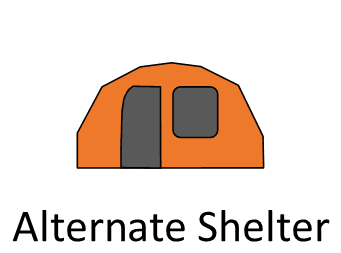
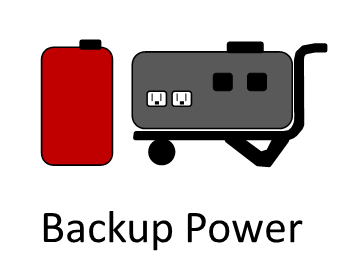
For most emergency or preparedness scenarios you will be at your own home. Many of the other categories listed will come into play during a shelter at home scenario. You will want to think about how you would live in your home if there was a power outage or water shortage. What kinds of items would make living in those conditions more manageable? For power outages you will want to consider lighting, heating / cooling, refrigeration, etc. A few lanterns can make a huge difference in being able to function in your home in the dark. You will also want to consider how you would cook and disinfect water without a stove or microwave. Other things to consider would be how you would handle sanitation during prolonged outages. If you have an alternate source of water, you can fill up your toilet tank with water for flushing. If you do not have extra water to do that you may need to consider a composting option. There are simple solutions such as a toilet seat that attaches to a bucket that you can use with wood shavings. This is not the most pleasant thing to think about but will make life much easier if considered ahead of time. Can you open your windows, and do they have screens in them? In the summer months if you do not have AC you will want to find other ways to ventilate and cool your home.
A simple way to see what you would need immediately would be to shut out the lights one night and use the flashlights / lanterns you have on hand to prepare a meal. You do not need to turn off your power to get a good idea of what would make life much easier in a scenario like that, just turn out the lights. You will quickly find that hands free lights are a top priority and the lights you do have probably do not light up as much as you thought. You can continue to build on your preparedness by adding additional elements to the scenario. What it the power was out and you did not have running water? What if the power was out for several days and the food in your refrigerator was starting to go bad? Waiting until you are in one of these scenarios to learn what to do will add lots of stress and inefficiency. Thinking through and preparing ahead of time will make dealing with situations like this much more manageable and can be done fairly inexpensively.
Having an alternative shelter will be most important when sheltering in place is not an option. Already having this shelter and knowing how to use it ahead of time will be extremely valuable in a scenario when you must use it. Shelters can be made from materials in nature but having a tent beforehand can make your situation tremendously more comfortable as well as reducing the stress of the situation. Tents come in all sizes and have a wide range of prices. You can usually find relatively good quality tents that will meet your size needs at affordable prices at a big box store or online. Once you have a tent that suits your needs you will want a few more basic items, a sleeping bag, sleeping pad, and a lantern will be the bare minimum to get you started. Having a clean, dry space to keep you and your personal belongings during an emergency will allow you to focus on other tasks and needs.
The best way to learn about camping is to just go camping. For those that have never camped before, there are many state and national park campgrounds as well as private campgrounds all around this country. They are usually fairly inexpensive per night and provide some basic amenities such as restrooms and shower houses as well as level campsites. You will quickly find out what you need as well as what you would like to make your camping experience more enjoyable. Each time you go camping you can refine your camping list until you are quite comfortable while camping. Camping will also allow you to test out many of the other skills / items suggested on this site.
Having alternate power sources can be an easily overlooked resource but one of the most valuable when needed. Alternate power can be anything from a backup power block to charge a cell phone one time to a whole house generator to keep your power running during an outage and many levels in between. Your individual situation will determine which alternate power sources are good for you but most could start with an emergency hand crank radio. Also a power block and a small solar charger in order to recharge cell phones and small devices. When a power outage does happen you will need to consider how long items in the refridgerator and freezer can last before you have to find something to do with them. You will also want to consider a light source for when it gets dark.
Having an alternate source of power is an important thing to consider. Whehter you need to charge a cell phone or supply power to your home or keep medical equipment running you will want to have your alternate power source in place before the emergency. At the most basic level you will want something that can recharge a phone. You can start inexpensively with a power block for recharging phones or a hand crank radio with charging capability all the way up to a whole house generator and solar panels. Each persons budget and needs will dictate the level they can go but you will want to have something in this area.
Health & Safety
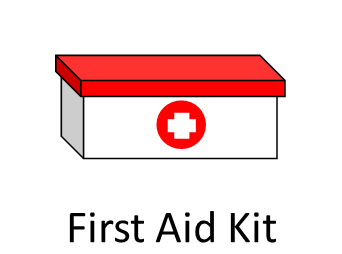


A good first aid kit is a must for every household. Having a first aid kit and knowing how to use its contents is essential for everyone in everyday life situations. You can use them to treat minor injuries as well as for stabilizing injuries until proper treatment can be administered. In emergency situations where help is not available, they can be lifesaving. Even minor injuries and cuts can become life threatening if not properly cared for. Good hygiene and cleaning of wounds is essential to prevent infections. Most first aid kits also contain topical medications for fighting infections and dealing with pain.
Step one would be to purchase a highly rated household first aid kit. Most of them will also come with some instructions on how to use the contents. You don’t have to become and expert on first aid but get familiar with the contents and what they are used for. You do not want to be trying to figure out what the different components are used for at the time of the emergency.
Medications during emergency situations can be a life or death situation. Even if not lifesaving they can make your quality of life much more bearable for things as simple as a headache or allergies. Many basic over the counter medications are relatively inexpensive and will be invaluable when not available. If you do not have knowledge of alternative and natural medicines, simple injuries and illnesses can turn into much larger problems if left untreated or when medicines are not available. A good first aid kit will often contain the basics of dealing with injuries, but you will also want to be prepared for illnesses as well. If you take prescription medications think about how you would get those medications if the pharmacy were not available. Are there any alternatives? Could you get a longer supply? For over the counter medications it will be easy to stock up on some extra. There are some basic over the counter drugs that would be good to keep in supply, pain relievers, anti-inflammatory, allergy medicines, antacids, anti-diarrheal, etc. Each person’s medicine cabinet will be much different so get the medicines that will most likely meet your needs. If they are affordable buy a little extra each time until you have a backup supply. As time goes on you can use and replenish this supply and make it part of your normal rotation. Vitamins and supplements, natural remedies
It will be difficult to find substitutes for medicines in situations when they are not available. Having these items beforehand will give you piece of mind as well as help you stay healthy in difficult and stressful situations. Think about the medications and suppliments you currently take and start building up a back up supply of those. For prescription medications, talk to your doctor about getting a longer supply or possible alternatives. If you have never thought about natural medicines, it is a great topic to explore. Up until recent history medicines were created from natural materials. Many illness can be treated right from nature.
Go To Checklist 
Overview
- Supply Of Prescription Medications
- Supply Of Over The Counter Medications
Links
Having good hygiene during emergency situations is not only helpful for avoiding illnesses and health issues but also can help your wellbeing in making you feel better in general. With some basic supplies and forethought, you can be well prepared in this area. Something as easy as washing your hands can be a challenge if there is not a source of clean water. Many of the checklist items in the other sections can be pulled together to help in these situations. Have a water source and a way to disinfect the water. You may also want to store back a few extra gallons of water for hygiene purposes such as hand washing and brushing your teeth. You will want to think about alternative ways of bathing if for some reason running water is not available. There are many camping items related to hygiene for off grid use.
Emergency
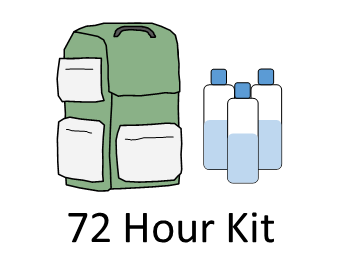
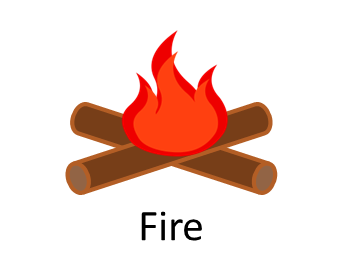
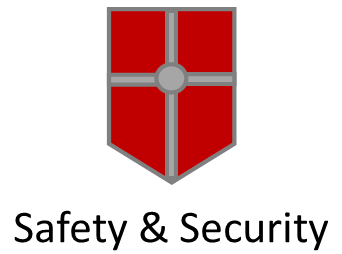
Having a 72 hour kit is recommended by most government and emergency response agencies including FEMA and the Red Cross. A 72 hour kit includes tools and supplies you will need to sustain yourself for 3 days in the case of an emergency. Having a proper kit is essential to being prepared for emergencies. These kits are also intended to be able to be taken with you in case of emergencies. The kit should contain all the items / tools you would need to live until the emergency is over or help is able to get to you. Once you have your initial kit you can begin to customize it to work for different scenarios in your area and even for longer periods of time.
To start your 72 hour kit you will need a container. This can be a backpack or even a five gallon bucket with a lid. There are many different options and price ranges for your pack of choice. The important thing is to get something that will be durable and hold all of the intended items. A five gallon bucket is a very inexpensive option and can serve multiple purposes. Once you have your pack you can begin going through your checklist and adding items to your pack. Many of the items from the other sections can be used to build your 72 hour kit.
Fire can be the difference between life and death in some emergency situations and add much needed comfort and capabilities to less severe emergency situations. It can provide heat, light, a way to cook, a way to purify water, and provide entertainment. Most people do not think about fire and what it would take to create it or how to start a fire for use. It seams very simple but can be very challenging depending on the conditions and availability of a fuel source. With proper tools and a little practice, building a fire can be one of the most useful skills you can obtain.
The easiest way to start a fire would be by using a lighter. There are many ways to start a fire with many tools and primitive techniques which are important to know, but if a lighter is available, that would be option #1. This is a must have for your pack and to have around the house. There is no learning curve, it can help you immediately. Purchase a 5 pack of these a local store and put them in several locations, a car, 72 hour bag, at the house, and anywhere else you frequent. You will want to make sure you keep them secure if you have small children. Knowing how to make fire by multiple methods is important and you will want to continue to learn different ways of starting a fire as you expand your skills.
Personal safety is knowing how to stay out of dangerous situations as well as how to defend yourself if you are in a dangerous situation. Everybody is going to have different opinions and ways of doing this. For the purposes of this site we will not be going into the details how to defend yourself and what to use but try to help you to mitigate risk and think about learning more on the subject. The more prepared you are in other areas will help you to avoid dangerous situations, especially during the onset of an emergency situation. You will also want to consider your personal safety at your own home. There are several steps you can take to make your home more secure.
Learn more about self defense. Whether you take a class or learn how to use self defense tools, get more educated. Avoid dangerous situations. During an emergency avoid areas that may be high risk. The more prepared you are the less likely you will have to go out during the height of the emergency. To secure your home you can start with making sure you have sufficient locks and keeping them locked. There are also several budget friendly camera and security systems available. There are many sights that offer tips in this area.
Go To Checklist 
Overview
- Evaluate Your Current Safety
- Come Up With A Safety Plan For Emergencies
Links
Skills

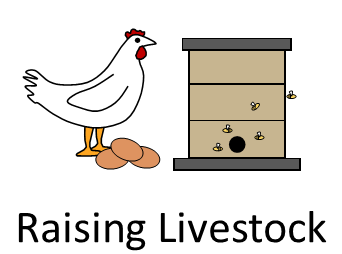
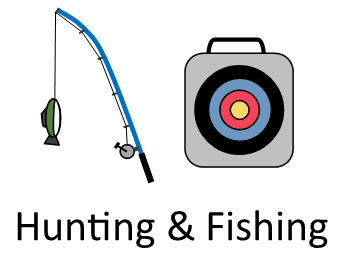
Gardening is an essential skill for everyone. The principals involved in gardening will allow you to grow lots of food from seeds or seedlings. Anyone can start with gardening whether you start with a 5 gallon bucket on a balcany or a garden plot with many plants growing. There are many levels to gardening but learning the basics will give you a foundation to build on. Along with many other skills you do not want to garden for the first time in an emergency situation. By starting now you can learn what grows good in your environement, what pests you will have to combat, and what you like to eat. The other consideration for gardening is if you will grow enough to eat as you go or if you plan on trying to preserve your bounty. The topic of preserving is as broad as gardening itself. You may want to start with a few items to try to can or freeze and work your way up each season.
Learning how to raise your own animals for food production can be rewarding as well as one of the biggest single steps in becoming self sufficient and pepared. There are many different animals for different purposes and locations. You can raise animals to fill many different needs. Some raise livestock for meat production, others raise chickens for eggs, and some animals are raised to be milk producers. The types and purposes of the animals you will want to raise are entirely dependant on your personal preferences and your environement. See what types of livestock others in your area raise and that will give you a good idea of what does well in your area.
Hunting and Fishing are great skills to have for procuring food. It is totally up to personal preference on if you would want to get involved in either. Depending on your location and state and local laws will determine what types of animals are available to hunt or fish and the rules on how to safely do so. Check with your local and state rules and regulations before you attemp to hunt. You will want to learn how to ethically and safely harvest the animal that you are seeking. You will also want to learn how to harvest and preserve the animals that you catch to prevent wasting your catch.
Fishing: You can fish to catch meat as well as to catch and release for the enjoyment of fishing. As with hunting you will want to learn your state and local regulations before going fishing. You also do not want to try to learn how to hunt and fish in an emergency situation. You will learn what works and what doesn't for you each time you go. The more you go and more you learn the better you get. You can ask others who hunt and fish in your area and most of the time they will be happy to give advise.
Go To Checklist 
Overview
- Learn About The Hunting And Fishing In Your Area
- Learn How To Process Wild Game
Links
Other



It can be overwhelming to try to do everything yourself. Some people do great by themselves but most of us need to rely on our community and family to help fill in the gaps. Being prepared is no different. Having other people to learn from and share your knowledge with can save lots of mistakes and make both sides better prepared. It is also very beneficial when you can pool your resources. Ask questions and learn from people who have more experience. You will typically find that people who have already started working on being prepared are more than willing to share what they have learned along the way.
Communications are extremely important in emergency situations and also extremely volatile. There are some steps you can take to improve the functionality of your electronics in these situations. One of the downsides to depending on a cell phone in emergencies is that the battery will drain usually within a day or two. You will want to have an alternate power source to power and recharge in an emergency situation. A hand crank radio will help you top of the charge but may not be practical for fully recharging. A backup power bank can get you one or two full recharges before also being drained. You may want to consider a small backpacking solar charger in combination with a power block to be able to recharge your devices repeatedly.
Cell Phone - Your cell phone is most likely your primary communication device. Having a way to recharge your phone is the most important thing to consider. If cell service is down you may want to use airplane mode or a low power mode to help save battery life. You can switch back and forth periodically to see if cell service has been restored. This can help you get some extra time out of each charge. It will also be helpful to learn how to download some content onto your phone such as games, apps, information, books, that can be accessed without an internet connection.
Radio – Radios are an important tool for staying informed and for entertainment in an emergency situation. Radios are a very reliable communication device and can pick up emergency broadcasts and if equipped can access NOAA channels for weather information. Compact weather radios are usually the most versatile and affordable. Most of these radios also have a flashlight, hand crank charger, and charging ports. These radios are very versatile and can check many boxes on your preparedness checklist.
Television – TVs are also an important communication device for getting information about what is going on as well as for entertainment. Most people have cable or satelite providers for thier programming but you can also get many channels for free with an antenna. Most modern televisions have a built in digital tuner that allows a standard antenna to pull in many channels depending on location.
Other – 2 Way Radios, CBs, and Ham Radios are some of the other options available. 2 Way Radios are a great addition to an emergency kit. They allow you to communicate with someone sometimes up to several miles away when other communications are not working. CB’s and Ham radios are at the top of the list when it comes to emergency communications but do have a bit more of a learning curve. Ham radios will require a license as well. It would be worth looking into these options if you want to solidify your communication capabilities.
Being financially prepared for emergency situations will reduce stress and allow you to focus on dealing with the issues at hand. There are many levels of being financially prepared, the first step being having an emergency fund. This is cash that is set aside just for dealing with emergencies. This is money that you can use to purchase supplies if you must relocate or if your income is suddenly cut off. It can be anywhere from $200 to $1000 depending on your situation and family size. Once you have an emergency fund in place you can begin to set aside enough money to pay your living expenses for one month.
You can start by putting $20 to $100 dollars back somewhere secure each pay until you reach your initial emergency fund goal. Once you reach your initial goal start to think about how much it would take to cover living expenses for a month and so on. This one will be difficult and require discipline but in combination with the other checklist items will make an emergency less stressful and allow you extra time to figure out your situation.